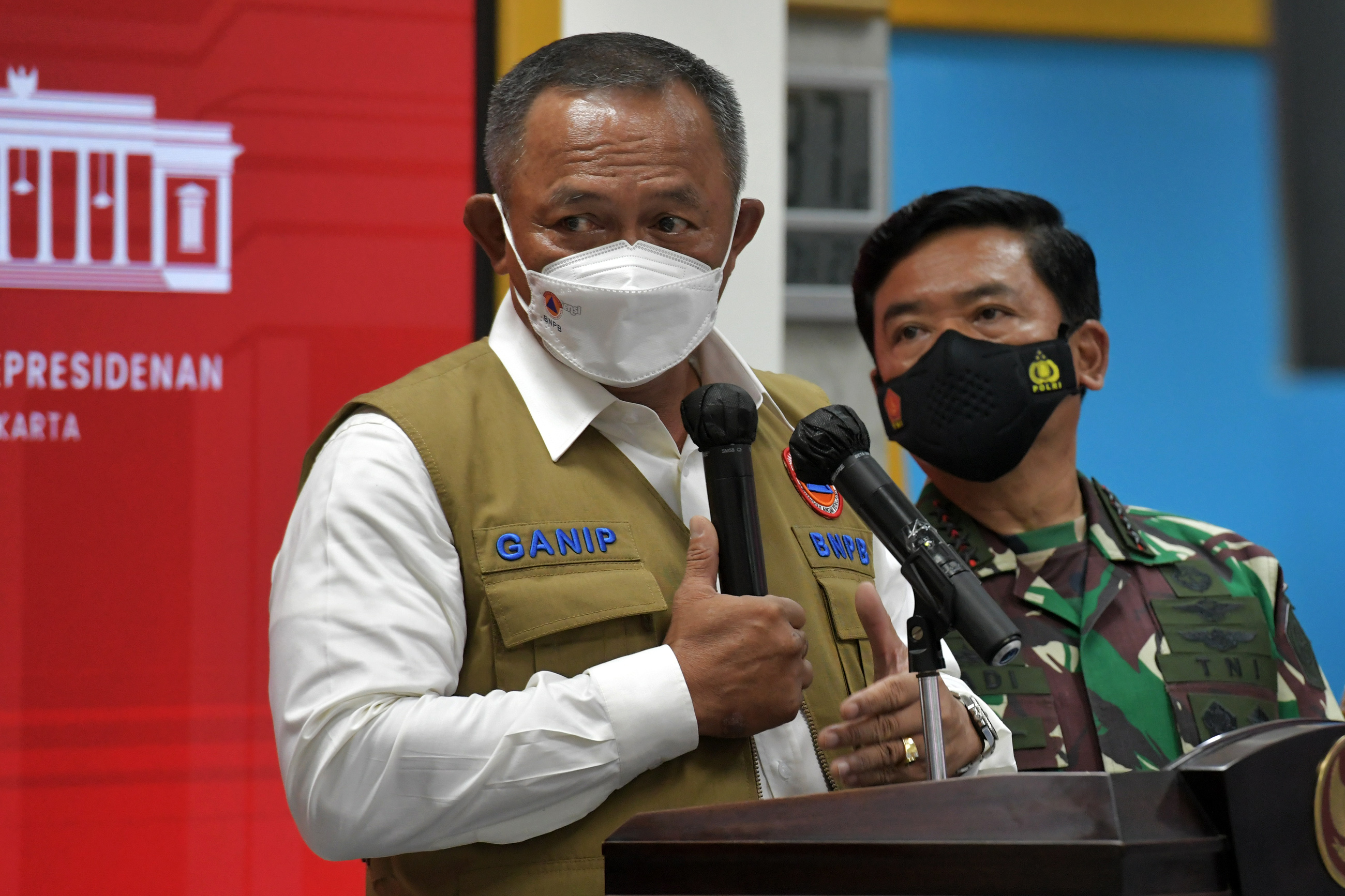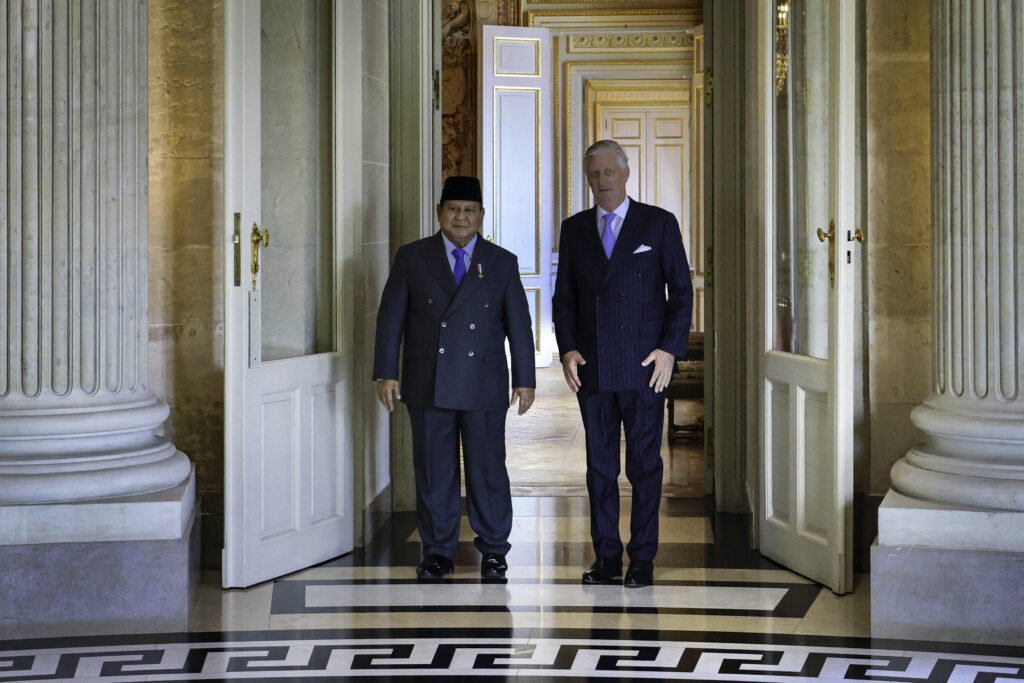COVID-19 Task Force Committed to Optimizing Micro-Scale Restriction Command Posts

Chairperson of the COVID-19 Handling Task Force Ganip Warsito delivers a press statement after attending a Limited Meeting on COVID-19 Pandemic Handling, at the Presidential Palace, Jakarta, Monday (7/6). (Photo by: PR of Cabinet Secretariat/Rahmat)
The COVID-19 Handling Task Force has renewed its commitment to improving the implementation of micro-scale public activity restrictions (PPKM Mikro) to curb the disease transmission, according to Head of the National Disaster Management Agency (BNPB) who also helms the COVID-19 Handling Task Force Ganip Warsito.
“We’re focusing on the management improvement from upstream to downstream on the ground. We will improve the management at the PPKM Mikro, particularly the function of PPKM Mikro command posts,” Ganip said in a press statement after attending a Limited Meeting on COVID-19 Pandemic Handling chaired by President Joko “Jokowi” Widodo, at the Presidential Palace, Jakarta, Monday (7/6).
Ganip went on to say that his agency will improve the four aspects in the function of PPKM Mikro command posts, namely prevention, action or handling, fostering, and supporting.
As a result of poor PPKM Mikro management, he said, the spike in daily cases has occurred in several regions, such as Kudus in Central Java and five surrounding regencies.
“For that reason, we will continually make the most of PPKM Mikro command posts to monitor and evaluate regional cases data as well as develop strategies for the handling,” he stated.
Ganip also underscored the importance of awareness on COVID-19 handling parameters, including the number of active cases, recovery rate, death rate, and bed occupancy rate, as well as people’s mobility.
On that occasion, Ganip also urged regional governments and the COVID-19 Task Force in the regions to constantly ensure and evaluate the availability of treatment beds, health workers, and self-isolation areas in anticipation of a spike in COVID-19 cases.
“The availability of healthcare services must be well-monitored and evaluated. As Chairperson of the COVID-19 Handling Task Force, I will focus on the management on the ground, coordinating with relevant ministries, the Indonesian National Defense Forces (TNI), the National Police (Polri), and regional governments concerning treatment beds needed in the regions,” he added.
Moreover, his agency will also continue to boost 3T (testing, tracing, and treatment) efforts and enforcement of health protocols discipline.
Ganip also pointed out that the strategies carried out in handling COVID-19 include providing assistance from micro-level up until regional governments, increasing more personnel for enforcing health protocol discipline and supporting health workers, as well as providing support for health facilities and infrastructure.
“For the next strategy, we will make the pentahelix collaboration (a model comprising businesspeople, the Government, community, academics, and the media) more effective, especially those associated with community leaders and traditional figures, because the figures’ character will determine the success of education and dissemination towards health protocols discipline,” he said.
The Central Government through the COVID-19 Handling Task Force, Ministry of Health, and other relevant ministries will continue to provide support to regional governments in order to suppress the surge in COVID-19 cases, he added.
Closing his statement, Ganip stressed that his agency will also continually tighten the entry of Indonesian migrant workers and foreigners to the country.
“We will enforce this protocol firmly. We will do the entry test, followed by a five-day quarantine, ended with the exit test for the next five days. Especially for Indian nationals, we will tighten the protocols, namely a fourteen-day quarantine. Afterwards, the exit test will be carried out. That’s the effort to ensure that the person tested positive or negative for the disease,” he said. (TGH/UN) (RIF/MUR)








